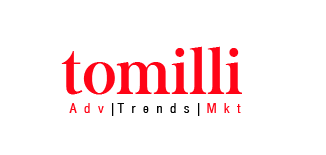To stay relevant, brands must have an entrepreneurial and DEI focus
The increased global demands for inclusion and diversity are pushing retailers and their brand partners to make commerce more accessible and equal for all. Leading retailers are accelerating their efforts to scale more small business, direct-to-consumer and social impact brands. This initiative that prioritizes upcoming inclusive brands over more established ones is called “bringing justice to shelf.”
Retailers and CPG brands can meet the new demand by building justice-to-shelf strategies into their marketing ROI and creating equitable commerce experiences where no community or culture is marginalized.
According to Ipsos, 54% of consumers expect brands to take a stand on equality issues—the numbers are higher among young consumers aged 18-34 (65%) as well as Hispanic (64%) and Black (62%) consumers. These demographics will act as champions of brands they believe in and foils to those they don’t.
Inclusive brands bolster consumer confidence, which translates into more brand value in the marketplace. Start by creating commerce opportunities that are accessible for all, like when established power brands partner with locally-minded brands to solve community problems. Or when a retailer adds more diverse small businesses to fuel future growth. Or when companies create media messaging content that increases brand awareness across a multiplicity of communities.
So how can your brand bring justice to shelf?
Level the playing field
Google got off to a great start with its Black-Owned Friday campaign. Shortly after George Floyd’s murder and the protests that followed in 2020, Google partnered with the U.S. Black Chambers to transform Black Friday, the post-Thanksgiving shopping holiday that typically benefits big-box retail stores, into a call to action to support Black-owned businesses.
Google leveraged its network to highlight small businesses and added a Black-owned attribute on Google Business listings, with a link to resources for these businesses to take better advantage of the platform. Initially, the campaign drove a 300% spike in online conversation about Black-owned businesses. In its second year, Google worked with musician T-Pain to create a shoppable music video that features more than 100 products from over 50 Black-owned businesses.
What’s your next move? Identify specific ways to deliver justice to shelf by incorporating social impact brand access into your business and marketing models.
Increase brand awareness
A partnership between Ben & Jerry’s and Blk & Bold shows how to create new justice-to-shelf brand experiences. Introduced in the fall of 2021, Ben & Jerry’s Change Is Brewing flavor is made from cold brew by Blk & Bold, the Des Moines-based coffee roaster, created by Rod Johnson and Pernell Cezar, that is one of the biggest Black-owned coffee brands in the country. Made in collaboration with the Movement for Black Lives, this product was designed to raise awareness for the People’s Response Act as well as celebrate the work of Black creatives.
This is an example of a digitally native, BIPOC brand scaling with an established brand to make a premium product more accessible at mainstream retailers, all while connecting people with important social issues. It shows how brands can take a stand and do something socially responsible and generate positive sentiment that reaches far beyond just one community.
Similarly, Walmart harnessed the power of distribution channels to spotlight BIPOC brands with a series of shoppable livestream events. It features Black founders such as Jermaine Dupri of JD’s Vegan Ice Cream and Dr. Lisa, founder of The Fresh Dolls—the largest Black-owned multicultural doll company—and is housed among its “Black & Unlimited” shoppable page.
What’s your next move? Look for BIPOC-created products and services that complement your brand and ink partnerships that will enhance the brand experience at scale.
Drive conversion at shelf
Ulta Beauty recently doubled its diversity, equity and inclusion commitments to $50 million and in 2022 will focus on BIPOC brand amplification, assortment growth and equitable guest experiences. Their category assortment inclusive commitments seek to bring justice to shelf by:
Launching a Brand Partner Accelerator Program focused on early-stage BIPOC beauty brands. The retailer will provide time, resources and mentorship to educate, inspire and support brand development.
Investing $5 million in New Voices, a venture capital firm that partners with and invests in entrepreneurs of color to drive scalable, sustainable businesses and create generational wealth. As the VC’s beauty retail partner, Ulta Beauty will provide priority access to shelf space, merchandising and marketing support.
Allocating $3.5 million to in-store merchandising support so guests can more readily find the Black-owned, Black-founded and Black-led brands in its aisles.
What’s your next move? Build consumer experiences for specific audiences based on DEI best practices.
Game-changing ideas
Justice to shelf ultimately means making traditional commerce barriers and old formula assumptions obsolete. It requires the repositioning of game-changing entrepreneurial ideas ahead of established brand and private label ideas.
Consumers now expect brands to bring justice to shelf. If brands and retailers want to stay relevant and ahead of the growth curve, they must have an entrepreneurial and DEI focus to help them innovate and instigate category changes with more premium-branded, unified commerce experiences.
– Brian Owens is SVP, Commerce Strategy at VMLY&R COMMERCE US
Taken from: https://www.vmlyrcommerce.com/news-views/bring-justice-shelf-make-commerce-more-equitable





